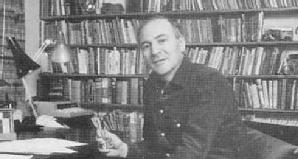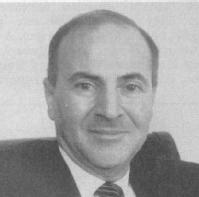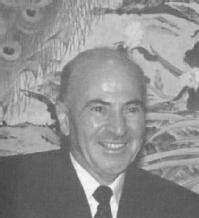L.G. Alexander's life and career
Louis George Alexander, whose mother was Australian and father Greek, was born in London in 1932. He spent the years of World War II with his mother in her native Australia, but returned to Britain after the war and was educated at Godalming Grammar School, Surrey, and Queen Mary College, University of London.
During National Service in the British Army Germany (1954-56), he had his first experience as an educator, teaching A-level English as an Educational Corps instructor. He then started his career in English language teaching and materials writing. Between 1956 and 1965 he taught in Greece, at the Protypon Lykeion in Athens (now the Skholi Moraiti (Moraitis School)), for most of that time as head of the English department.
He began publishing in the early 1960s, with Longmans. His first book (published in 1962) was Sixty Steps to Précis, and his second book, A First Book in Comprehension, was published in 1964. New Concept English, his first major book series, was published in 1967. With Longman, a string of further groundbreaking series followed: Look Listen and Learn (1968-71), Target (1972-74), Mainline (1973-81) all enjoyed great worldwide success.

From 1968 to 1978 Alexander was adviser to the Deutscher Volkshochschulverband (German People's High School Association), and he contributed to the design of two major English examinations in German Adult Education. Between 1973 and 1978, he sat on the Council of Europe's committee on modern language teaching, and co-authored their influential 'communicative' syllabuses The Threshold Level (1975) and Waystage (1977). His interest in syllabus was evidenced also in English Grammatical Structure (1975), a basic syllabus of graded structures for language learning (see also the Archive section of this website for a recorded lecture by Alexander which sheds considerable light on his developing preoccupations in the area of syllabus design).
In the year 1977 Louis Alexander sold a total of 4.7m books, and this was recorded by the Guinness Book of Records as the greatest number of copies sold by an individual author in one year. From 1979 to 1980 he provided the blueprint, and wrote the classroom materials for Follow Me (BBC and Longman) which put into practice the Threshold Level syllabus. According to one estimate, this series has been viewed by 500 million learners.

Between 1977 and 1981, Alexander was preoccupied also by the teaching of languages other than English. In the early 1980s he produced one of the first computer-based language learning courses, in French, Spanish, Italian and German, with software published by EMI for Atari, while in 1980-83 he developed the blueprint for Survive, a self-study series in several languages. Between 1986 and 1988 he served as adviser to the University of Cambridge Local Examinations Syndicate (UCLES) for the Cambridge Certificate in English for International Communication, and 1987-88 saw the publication of Plain English.
In the 1980s, Alexander also turned his attention to writing reference books: Longman English Grammar (1988; practice book 1990) and Longman Advanced Grammar (1993) were the outcomes.
In the late 1980s he worked for UNESCO on Junior English for China (1988, publ. The People's Educational Press, Beijing), providing the blueprint, that is, the skills syllabus and the language syllabus. While Neville Grant actually wrote the course, Alexander monitored and advised on this. The series is estimated to have been used by 40 million learners per year in China, for many years.
1994 saw the publication of further CALL materials: Direct English (consisting of interactive CD Rom and video, with internet components), while 1997 saw the publication of a new edition of New Concept English published specifically for China: New Concept English (Chinese) New Edition.

Louis Alexander died in 2002, and on 4 November 2003 a bronze statue was unveiled in his honour in the grounds of the Foreign Language Teaching and Research Press (FLRTP), the publishing house of the Beijing Foreign Studies University and one of China's largest ELT textbook publishers.
The above notes by Richard Smith were uploaded here in 2011.
See also 'Louis Alexander's family and life history' by Julia Alexander.
Note: The photographs above, copies of which were sent to us by Julia Alexander, have been uploaded above with her permission.
Sources [not all, as yet, incorporated in the above account]: Alexander, L. 1990. 'Fads and fashions in English language teaching'. English Today 21: 35-56; Alexander, L. and Tomalin, B. 1986. 'Seeking the philosopher's stone' [Interview transcript]. English Today 7: 17-18; [Li, P., Ethridge, W., Yang, X. and Alexander, J.] 2004. 'L.G. Alexander: a statue in Beijing'. English Today 78: 20-25; McArthur, T. and Alexander, J. 2002. 'Louis Alexander: We looked, listened and learned'. English Today 72: 3-7; Mortimer, D. 2002. 'Obituary: Louis Alexander: A revolutionary teacher of English to the world'. The Guardian, 9 July 2002, p. 18.



